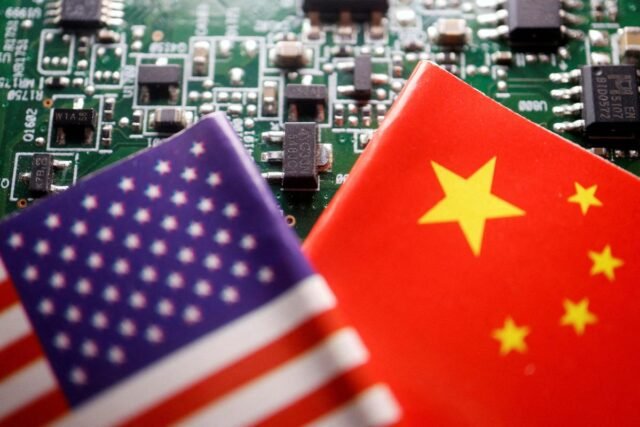
In a significant escalation of the ongoing tech war between the United States and China, the U.S. government is set to impose new regulations that would prevent Chinese companies from utilizing American cloud computing resources for AI model training. This move represents a strategic effort by the U.S. to maintain its technological edge and address national security concerns.
Key Highlights:
- The U.S. Commerce Department is beginning the process of requiring U.S. cloud firms to disclose when a foreign user trains an AI model.
- The initiative, known as ‘Know Your Customer,’ mandates U.S. cloud companies to rigorously identify their foreign users.
- This regulation is part of efforts to prevent malicious cyber-enabled activities and to safeguard U.S. technological superiority.
- The tech industry has raised concerns, viewing the regulation as a potential barrier to international AI collaboration.
- China, perceiving these measures as an economic suppression tactic, has criticized the U.S. for politicizing trade and tech issues.
Background of the U.S.-China Tech War
The U.S. has increasingly focused on curtailing China’s access to advanced technology, particularly in the semiconductor and AI sectors. Last year, restrictions were imposed on companies like Nvidia, preventing the export of advanced AI chips to China. These restrictions have led to the development of less sophisticated variants to circumvent U.S. export controls.
New Measures in Detail
The proposed regulation places significant responsibilities on cloud computing firms, including verifying foreign customers’ identities and maintaining rigorous user identification standards. The U.S. aims to shut down avenues for China to access or train their AI models using American technology. The regulation, however, faces challenges in implementation, as cloud services do not involve the transfer of physical goods and fall beyond the traditional domain of export controls.
Industry Reaction
The tech industry has expressed concerns about the proposed regulation. There are apprehensions that these measures could impede international collaboration in AI development. U.S. cloud providers are also worried about potential disadvantages if allied countries do not implement similar measures.
Global Context and Implications
This move by the U.S. is part of a broader strategy to contain China’s technological advancements. However, despite U.S. efforts, Chinese tech giants have continued to make significant breakthroughs. The global tech industry is closely watching these developments, as they have far-reaching implications for international trade, AI development, and geopolitical dynamics.
Summary
The U.S. government’s latest move in the chip war with China marks a significant step in its efforts to maintain technological superiority and address security concerns. By targeting the use of American cloud services for AI training by Chinese entities, the U.S. aims to limit China’s access to advanced AI capabilities. However, this approach raises concerns about its impact on global AI research and international relations.








